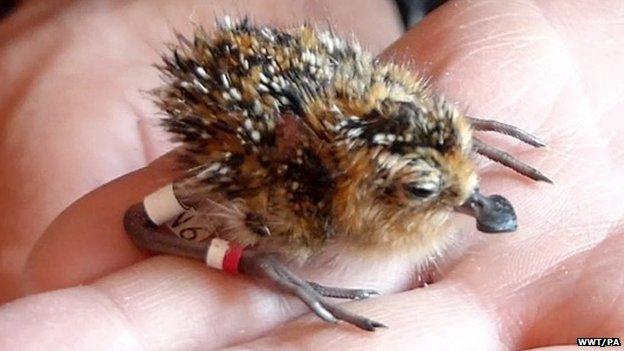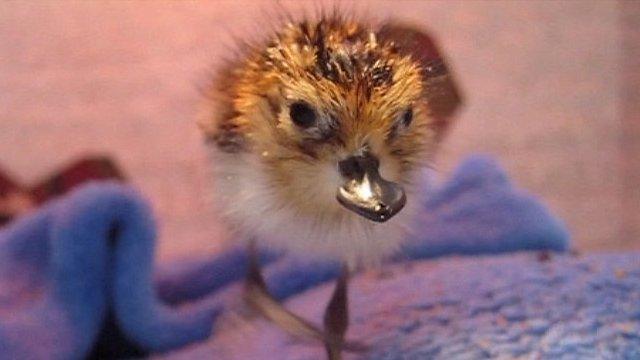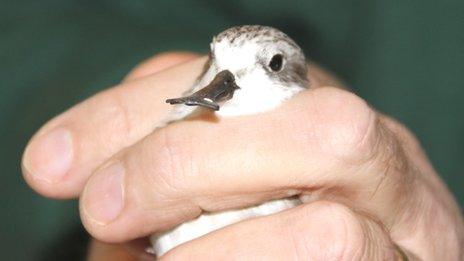Rare birds bred in Siberia by WWT Slimbridge experts
- Published

The birds were hand reared after being taken into captivity as eggs
Some of the world's rarest birds have bred in Siberia after being hand-reared by experts from the Wildfowl and Wetlands Trust (WWT) at Slimbridge.
The spoon-billed sandpipers were raised after being taken into captivity as eggs in the far east of Russia.
At least three have laid eggs after flying back from their winter breeding grounds 5,000 miles (8,000 km) away in south-east Asia.
The species is almost extinct with fewer than 100 pairs left in the wild.
Experts learnt how to hand rear the species, also known as "spoonies", in a conservation programme running in parallel at WWT's Slimbridge reserve in Gloucestershire.
'Dire situation'
Nigel Jarrett from the WWT said: "The art of fostering birds is still in its pioneering stages.
"For the spoon-billed sandpiper, which is unique in many ways and migrates ten thousand miles, we inevitably started off with unknowns.
"But because the situation was so dire we decided we had to act.
"The most crucial thing for the project - the real test of the birds we reared - has always been whether they would come back to breed.
"So far they seem to be doing at least as well as the birds reared by real avian parents, which means what we're doing is working and the birds are fit and healthy."
An online programme showing footage of the spoon-billed sandpiper's Russian breeding grounds will be streamed on WWT's website, external at 20:00 BST.
- Published13 July 2012

- Published19 December 2011
